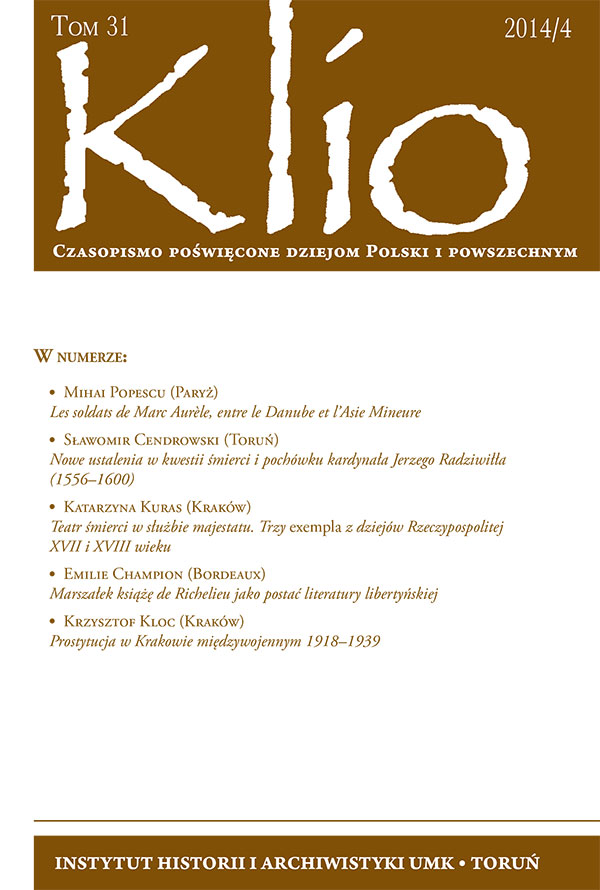Prostytucja w Krakowie międzywojennym 1918–1939
Prostitution in the interwar Cracow 1918–1939
Author(s): Krzysztof KlocSubject(s): Social history, Criminology, Health and medicine and law, Interwar Period (1920 - 1939)
Published by: Wydawnictwo Naukowe Uniwersytetu Mikołaja Kopernika
Keywords: Prostitution; interwar Cracow; adultery underworld;
Summary/Abstract: Despite the fact that harlotry in the Second Polish Republic was legal, as long as it had been reported to the relevant institution, it was still on the moral margins of social life. Moreover, the residents of Cracow were very concerned about the issue of indecency in the city. The prostitutes and other individuals involved in the business of prostitution were stigmatized by the rest of Cracow’s society. Thus, the occurrence of prostitution permanently ingrained and present since the Middle Ages, was not only the everyday part of Cracow’s interwar urban landscape, but also a significant social issue, which the administration, police, but also ordinary residents were attempting to resolve. Hence, there are very opulent archival and press release materials preserved, such as statistics and other materials regarding the key causes and determinants of prostitution, but also the exact locations in the area around the Wawel Royal Castle in which the phenomenon took place on a regular basis and various materials related to the age and education of harlots, financial matters associated with prostitution and the issue of health of prostitutes, which allow us to perform a deep analysis of many socials problems related to Cracow’s interwar world of harlotry. Likewise, administrative and police measures against Krakow’s adultery underworld have been discussed.
Journal: Klio. Czasopismo poświęcone dziejom Polski i powszechnym
- Issue Year: 31/2014
- Issue No: 4
- Page Range: 87-129
- Page Count: 43
- Language: Polish

